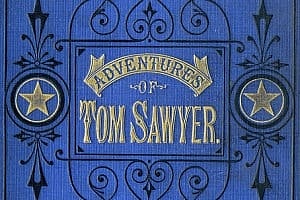8 Creative Writing Tips from Famous Authors and How to Incorporate Them Into Your Own Work
 Aspiring writers often look to greats in the field of literature to learn how they can reach the same heights.
Aspiring writers often look to greats in the field of literature to learn how they can reach the same heights.
You should also read…
And many writers simply love giving interviews where they throw out pithy and quotable lines about the nature of their genius. Think of Ernest Hemingway’s “There is nothing to writing. All you do is just sit at a typewriter and bleed.” It would look great on a mug or a t-shirt. But does this actually give you any insight into how to become a better or more successful writer? Probably not, unless you want to study its construction when working on your epigrams.
Still more writers provide advice that works beautifully for their own particular style of writing (such as Kurt Vonnegut’s stern words against semicolons, or Stephen King’s against adverbs) but may not be as generally applicable as they think it is.
As a result, we’ve compiled this list of 8 popular and pithy quotes from famous writers – and looked at what you can actually learn from them for use in your own writing.
1. “I took a master class with Billy Wilder once and he said that in the first act of a story you put your character up in a tree and the second act you set the tree on fire and then in the third you get him down.” – Gary Kurtz, producer of Star Wars Episode IV and V.

Has a more elegant summary of the three-act structure ever been produced? These are the principles at the heart of most storytelling, whether it’s around a campfire or on a cinema screen. You get your protagonist into trouble – then the trouble gets worse – then it gets resolved.
Note that this structure doesn’t demand a happy ending. Your character could depart the tree in as unpleasant a manner as you like; what this structure requires is plot progression followed by resolution, as well as tying you into a storyline that, at heart, can be summarised in a couple of sentences. Even if you’re writing a madly complicated epic fantasy series, it can be a good maxim to come back to. Which event constitutes putting the character up a tree? Are you just letting him hang around there, or are you keeping the tension going by setting the tree on fire? Do you just leave him up there getting toasty, or have you been sure to take him down?
![Image is a button that reads, "Browse all Literature articles."]() 2. “Substitute “damn” every time you’re inclined to write “very”; your editor will delete it and the writing will be just as it should be.” – Mark Twain, author of Tom Sawyer and Huckleberry Finn
2. “Substitute “damn” every time you’re inclined to write “very”; your editor will delete it and the writing will be just as it should be.” – Mark Twain, author of Tom Sawyer and Huckleberry Finn

Authors being critical of particular words or even types of word (we return to Stephen King and his adverbs) is a commonplace of writing advice. Often, they simply represent the writing fashion of their own time; Stephen King’s crisp, clear writing style (“She was a grown up now, and she discovered that being a grown up was not quite what she had suspected it would be when she was a child”) would sound as wrong in the 18th century as the more adverb-laden style of two or three hundred years ago does now.
Mark Twain’s advice still stands over a hundred years later – writing littered with the word ‘very’ is seldom any good – even though this is perhaps not a trap into which that many novelists fall, and few editors would systematically delete the word ‘damn’ any more either. The best message to take from this is to keep an eye on words you overuse, particularly if they are as weak as ‘very’, and delete them whenever they appear.
3. “If you have other things in your life – family, friends, good productive day work – these can interact with your writing and the sum will be all the richer.” – David Brin, Hugo-award winning author

An important message that many writers forget, this quotation from David Brin reminds us that locking yourself away in a garret isn’t a great move unless you want to write the twenty-first century’s Great Garret Novel. It reminds us that the greatest source of inspiration isn’t usually spending time navel-gazing, but going out and interacting with the world, and then seeing how easily an overheard conversation slides into your novel and becomes a plot point, or spotting a woman at the bus stop who looks exactly like the villain you couldn’t quite picture. This doesn’t just apply to realist fiction; David Brin is a science fiction author, and still takes inspiration from everyday human interactions and brings that into his work.
4. “My own experience is that once a story has been written, one has to cross out the beginning and the end. It is there that we authors do most of our lying.” – Anton Chekhov, playwright and author

This is the kind of zippy quote that Waterstone’s like to put on their bags, but what exactly does it mean and what can we learn from it? The former half of that question is probably best left to Chekhov scholars. The latter half is easier; this advice is excellent and straightforward if we simply ignore Chekhov’s justification. The beginning and end are less at risk of being full of lies than full of waffle.
It’s best to resist the temptation to open like a medieval saga with a multi-chapter genealogy and family history of all of your characters, and similarly to resist the temptation, like Tolkien didn’t in The Return of the King, to come to a logical ending to your story and then end it three more times. But if you can’t resist that temptation in your first draft, get it all out of your system and then simply delete those sections from draft 2 onwards.
5. “First, find out what your hero wants, then just follow him!” – Ray Bradbury, author of Fahrenheit 451

Like many other creative writing tips, this can feel a little bit like magical thinking. See also: “I let my characters decide the plot” or even “I had this bit all worked out, but then my characters decided to do something different” – as if the story you were writing was some kind of hyperactive game of the Sims, rather than something born from and guided entirely by your own imagination. If you are a more practically-minded writer, this might seem entirely baffling. (If it makes complete, instinctive sense to you, you might wish to skip ahead to the next point).
Don’t read this advice and proceed to treat the process of writing as a particularly lonely roleplaying game. Remember instead that when you have lovingly crafted a character who is so realistic that they could practically walk off the page, if their planned actions conflict with their character, then you need to change one or the other, rather than shoehorning a character into actions that they clearly would not perform.
6. “I love deadlines. I like the whooshing sound they make as they fly by.” – Douglas Adams, author of The Hitchhiker’s Guide to the Galaxy

This comment is an impressive demonstration of what not to do. Adams’ first bestseller – The Hitchhiker’s Guide to the Galaxy – ends very abruptly because he had missed so many deadlines that his publisher simply told him to finish the page he was on and sent a courier to collect the book as it was. Subsequent deadlines have a remarkable theme – the Doctor Who producer who locked Adams in his study and gave him coffee and whiskey for two days until it was finished; the girlfriend who locked Adams in her house until he finished The Restaurant at the End of the Universe; and the editor who locked him in a hotel suite for three weeks until he wrote So Long and Thanks for All the Fish.
It appears that, having found a solution to making Adams write to a deadline, his collaborators stuck to it, whether or not that meant committing the crime of false imprisonment.
There are two messages for aspiring writers here. One is that you should make an attempt to control your procrastination before it reaches such legendary heights. The other, I suppose, is that if you find an odd technique that helps you write, you should go ahead and make the most of it – at least other people will get a good anecdote out of it.
7. “I can’t write five words but that I change seven.” – Dorothy Parker, poet, short story writer, critic and satirist

Dorothy Parker was a writer now best known for a huge number of highly quoted phrases, such as, “the two most beautiful words in the English language are ‘cheque enclosed.’” The sharp, concise elegance of her writing is – as this quotation suggests – the result of a colossal amount of editing. Parker phrases this as if it were an unfortunate condition, but it’s a very rare writer who gets everything right first time. (To skip back to point 6, the book that Douglas Adams edited the most – Last Chance to See – was also the one of which he was the most proud).
There are arguments to be had about when editing is appropriate. Should you write a first draft in full before you go back to tweak anything, or should you edit as you go along? This will depend on temperament and ability to cope with imperfections. What is crucial is that by the time you’re ready to submit anything for publication, at least seven words have been changed for every five you initially wrote.
8. “If there’s a book that you want to read, but it hasn’t been written yet, then you must write it.” – Toni Morrison, Nobel prize-winning novelist

This is good advice for writers of fiction and nonfiction alike. In nonfiction the barrier to entry is higher (for instance, if you desperately want to read a first-person account of the writing of epic poetry in Anglo-Saxon times, you’ll be waiting a while) but in fiction the ground is open to everyone. If you’re fed up with whatever the prevailing literary trend is (whether that’s dystopian young adult fiction or yummy-mummy novels), you can be the change you wish to see in the world. Don’t be sanctimonious about writing the novel that you think the world needs – that’s a sure-fire way to lose friends – but it can be deeply motivational to remember that there is a space in the world where your novel should be. Aside from anything else, filling a gap in the market makes excellent business sense.
Do you have any creative writing tips that you think should be more widely known? Share them in the comments!
Image credits: banner; tree; Tom Sawyer; garret; ancestry; Sims; Douglas Adams; editing; bookshop.
